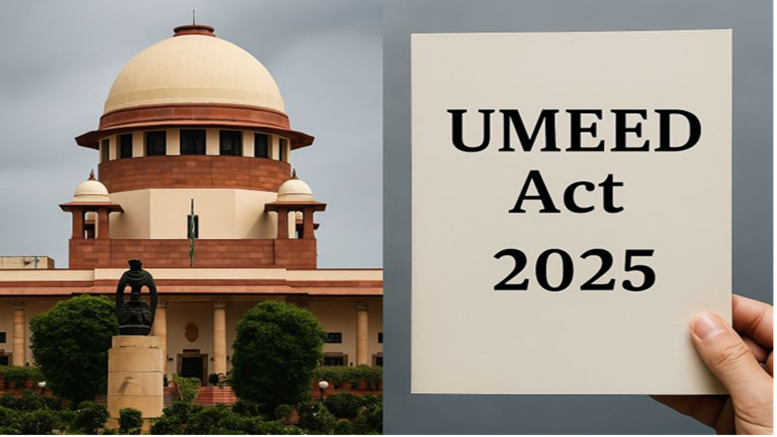- Courses
- GS Full Course 1 Year
- GS Full Course 2 Year
- GS Full Course 3 Year
- GS Full Course Till Selection
- Online Program
- GS Recorded Course
- NCERT (Recorded 500+ Hours)
- Polity Recorded Course
- Geography Recorded Course
- Economy Recorded Course
- AMAC Recorded Course
- Modern India, Post Independence & World History
- Environment Recoded Course
- Governance Recoded Course
- Science & Tech. Recoded Course
- International Relations and Internal Security Recorded Course
- Disaster Management Module Course
- Ethics Recoded Course
- Essay Recoded Course
- Current Affairs Recoded Course
- CSAT
- 5 LAYERED ARJUNA Mentorship
- Public Administration Optional
- ABOUT US
- OUR TOPPERS
- TEST SERIES
- FREE STUDY MATERIAL
- VIDEOS
- CONTACT US
Bangladesh Crisis: An unprecedented Coup
Bangladesh Crisis: An unprecedented Coup
Recent Context
- On August 5, 2024, Sheikh Hasina, the former Prime Minister of Bangladesh, was removed from her position and exiled, bringing an end to her leadership that began in January 2009.
- Significantly at the same day she resigned from the post due to intense protests over job quotas.
- The protests had escalated, leading to significant unrest and pressure on the government.
- Sheikh Hasina exited via helicopter, landing at Hindon Air Base Ghaziabad , near New Delhi.
Sheikh Hasina's Background
- Early Life: Sheikh Hasina was born into a Muslim family in East Bengal (now Bangladesh) in 1947.
- Her father, Sheikh Mujibur Rahman, is known as the founding father and first president of Bangladesh.
- He played a crucial role in leading the country’s independence from Pakistan in 1971. His leadership and vision were instrumental in shaping the new nation.
- Family Tragedy: Sheikh Hasina had three brothers, all of whom were assassinated along with their parents on August 15, 1975.
- This tragic event left a profound impact on the family and the nation.
- Her younger sister, Sheikh Rehana, was one of the only survivors of the 1975 assassination, as she was abroad at the time. The sisters have since been closely involved in political and social activities.
The Bangladesh Liberation War of 1971
Some of the important incidents related Making Bangladesh are given-
Aftermath:
|
Assassination of Sheikh Mujibur Rahman
- On August 15, 1975, Sheikh Mujibur Rahman, his wife, and their three sons were assassinated by army officials. This event marked a dark chapter in Bangladesh's history and had profound implications for the country's political landscape.
- Following the assassination, Sheikh Hasina and her younger sister, Sheikh Rehana, were the only survivors, as they were abroad at the time.
- Hasina lived in exile in India before returning to Bangladesh in 1981. Upon her return, she assumed leadership of her father’s party, the Awami League, and began her political career.
Political Career of Sheikh Hasina
- Pro-Democracy Protests: Sheikh Hasina allied with other political parties to challenge the military rule of General Hussain Muhammed Ershad.
- Her leadership during the pro-democracy street protests brought her into the national spotlight, establishing her as a strong political figure.
- First Term in Office (1996): Sheikh Hasina first assumed office in 1996. During her first term, she earned praise for signing a water-sharing deal with India and a peace agreement with tribal insurgents. These initiatives aimed to promote regional cooperation and internal stability.
- Criticism: Despite her achievements, Hasina's government faced criticism for alleged corruption and being overly accommodating to India.
- These criticisms highlighted the challenges of governance and the need for transparency and accountability.
- Loss of Power (2001): In 2001, Hasina lost power to Begum Khaleda Zia of the Bangladesh Nationalist Party (BNP).
- The rivalry between Hasina and Zia, known as the “battling begums,” led to significant political conflict, including violence and extrajudicial killings. This period was marked by intense political competition and instability.
- Return to Power (2009): Hasina returned to power in 2009, during a caretaker government election. Despite numerous arrests, assassination attempts, and allegations of corruption, she remained a resilient political figure. Her ability to navigate political challenges and maintain her position reflects her political determination.
Achievements Under Hasina’s Leadership:
- Economic Transformation: Under Sheikh Hasina's leadership, Bangladesh has transformed from one of the world's poorest nations into one of the region's fastest-growing economies. This transformation has been driven by strategic economic policies and investments in key sectors.
- Poverty Reduction: The country's per capita income has tripled in the last decade, with over 25 million people lifted out of poverty. This significant reduction in poverty levels reflects the government's commitment to inclusive economic growth and social development.
- Garment Industry: The garment industry has been a major driver of Bangladesh’s economic growth, constituting the bulk of the country’s exports. The industry has provided employment opportunities and contributed to the country's economic prosperity.
- Infrastructure Development: Hasina's government has invested heavily in infrastructure, including the $2.9 billion Padma Bridge across the Ganges. This project, funded through domestic funds, loans, and development aid, is a testament to the government's commitment to improving connectivity and facilitating economic activity.
Controversies and Challenges:
- Job Quota Protests: The latest unrest in Bangladesh erupted over job quota reforms and expanded into broader anti-government protests. These protests highlighted the growing dissatisfaction among certain segments of the population with the government's policies.
- Economic Difficulties: Economic difficulties, exacerbated by the pandemic, have led to inflation, declining foreign exchange reserves, and rising foreign debt. These challenges have undermined the previous economic successes and raised concerns about the government's ability to manage the economy effectively.
Quota System History:
- Origins of the Quota System (1972 Introduction): After Bangladesh gained independence in 1971, the new government introduced a quota system to recognize and reward those who played a significant role in the liberation struggle. The system reserved 30% of government and semi-government jobs for the descendants of the freedom fighters who fought against Pakistani forces during the Liberation War. This included not just veterans but also their children and, later, their grandchildren.
- Expansion and Modifications (2011 Extension): In 2011, under Prime Minister Sheikh Hasina’s administration, the quota benefits were extended to include the grandchildren of freedom fighters. This was part of a broader policy to acknowledge the contributions of families who had been part of the independence movement.
- Withdrawal of the Quota System (2018 Removal): In October 2018, the government decided to withdraw the quota system for freedom fighters, citing concerns about fairness and merit-based recruitment. This move aimed to streamline the recruitment process and address issues of nepotism and favoritism.
- Legal Challenges and Recent Developments (June, 2024 - High Court Ruling): The High Court Division of Bangladesh’s Supreme Court ruled that the 2018 decision to remove the quota was arbitrary. The court reinstated the 30% quota after relatives of 1971 veterans filed petitions, arguing that they still represented one of the most disadvantaged groups in the country.
- Quota Allocation: Following this ruling, 56% of government jobs were reserved for specific groups, including children and grandchildren of freedom fighters, women, and people from 'backward districts.'
Key Developments:
- Student Protests: The reinstatement of quotas triggered recent protests, with students questioning why the third generation of freedom fighters was being provided benefits. They demanded a total merit-based recruitment system.
- Supreme Court Verdict: Recently, the Supreme Court struck down the controversial quota system. The top court ordered that 93% of government jobs be allocated on a merit-based system, while 7% were reserved for relatives of veterans who fought in Bangladesh’s 1971 war of independence, among other categories. Previously, 30% of such jobs were reserved for relatives of war veterans.
Political Implications:
- Anti-Government Movement: The massive protests have turned into a significant anti-government movement demanding the resignation of Prime Minister Sheikh Hasina, who was voted back to power for a fourth consecutive term seven months ago.
- Non-Cooperation Movement: The organizers of the students' protest called for a nationwide non-cooperation movement starting from Sunday (August 4). This movement includes refusing to pay taxes and utility bills, and the closure of government and private offices.
Ongoing Issues:
The debate over the quota system reflects broader issues related to employment fairness, historical recognition, and political dynamics in Bangladesh. The current unrest is fueled by these complex factors, including demands for reform and criticisms of both the quota system and the government's handling of the situation.
Impact of the Bangladesh Crisis on India
|
Conclusion:
Sheikh Hasina resigned as Bangladesh's Prime Minister after a 15-year tenure marked by significant economic growth but increasingly authoritarian rule. Despite notable achievements like substantial poverty reduction and major infrastructure projects, her government faced widespread criticism for corruption, repression of dissent, and worsening inequality. Student-led protests over job quotas quickly grew into a broader movement against her regime's heavy-handed tactics, leading to her dramatic departure.


![img-PSYCHOLOGICAL WARFARE [PSYWAR]](https://i.filecdn.in/755esias/PSYCHOLOGICALWARFAREPSYWAR-1747206772505.jpg)

